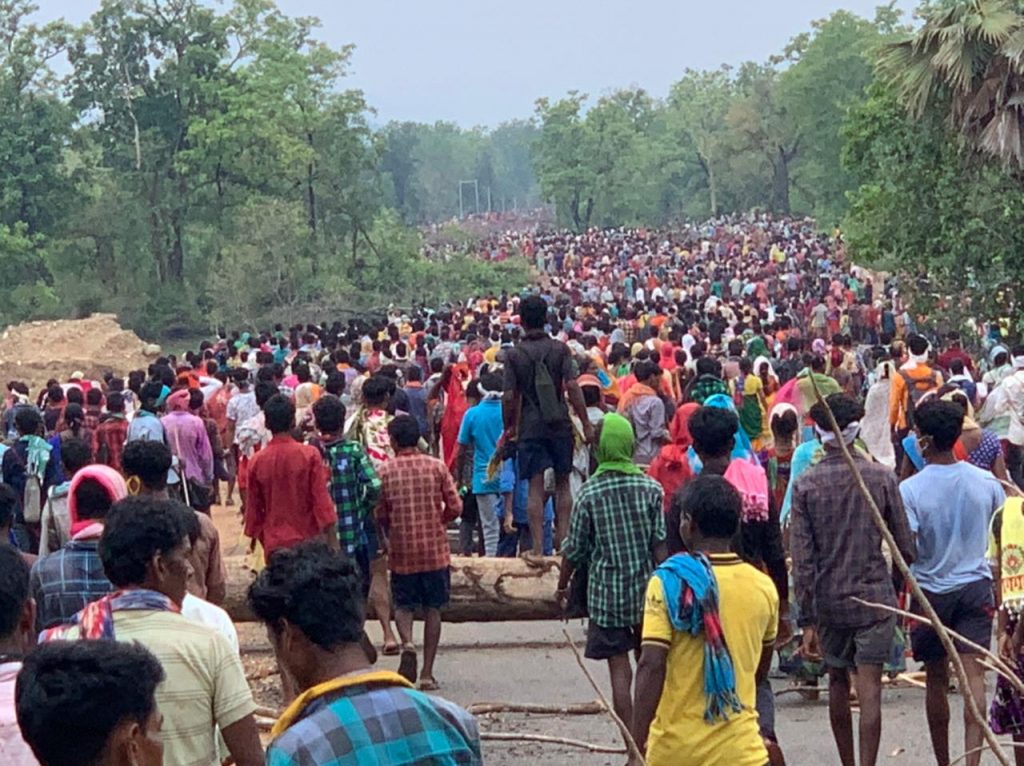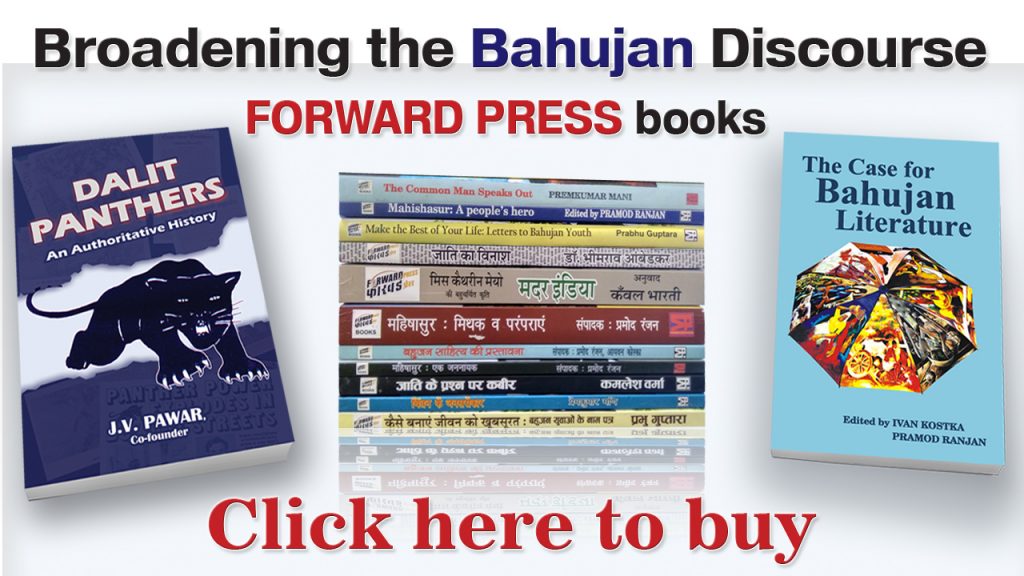Sukma is a district in Chhattisgarh. Silegar is a village in Sukma. All the residents of Silegar are Adivasis. In fact, Adivasis are in an overwhelming majority in the entire Sukma district. The Adivasis inhabiting Silegar come from the Koya tribe. As for Sukma district, it is also populated by Dorla and Halba Adivasis. Then there are non-Adivasis people of Telanga, Dhakad, Kalar, Raut and Ghasia castes. But their population is far less than that of the Koyas.
The Koyas of Silegar have been protesting for the past six months. They have some demands which the Congress government of Chhattisgarh has yet to fulfil. When the stir was launched, the government tried to terrorize them. The protesters were fired upon, killing three men, one woman and an unborn child.
But the Adivasis did not relent. Their protest is continuing to date. They have no leader. All the decisions regarding the stir are taken by them collectively.
It all began with the government establishing a police camp in the village. The Adivasis protested against it. The police opened fire on the protesters, which only served to prolong the protests.
In the past, there have been movements demanding land for the landless. These were called Bhumi Andolans. These movements led to the abolishment of the landlord system by Nehru, launching of Bhoodan Andolan by Vinoba, enactment of land ceiling laws and allotment of land to the landless under the 20-point programme.
But after the advent of globalization, liberalization and privatization in India, corporates started grabbing the land, the rivers, the mines and the coasts that sustained Adivasis with the help of the government. Adivasis and other social activists protesting against this loot were promptly put behind bars. Thousands of Adivasis were murdered in unconstitutional campaigns like Salwa Judum and Green Hunt. Adivasi women were raped and men were jailed.

Today, the Adivasis of India have been reduced to such a state that they are no longer asking for anything from the government. They only want the government to be kind enough not to deprive them of what they have. But the government is not ready to concede even that.
Sukma district is a Fifth Schedule area. Just as governments use Section 144 to stop people from assembling to protest, the Fifth Schedule of the Constitution of India protects the land, forests, water, lives and livelihood of the Adivasis from the government. This provision has become an irritant for the governments.
In the Fifth Schedule areas, the government cannot put land to any use without the consent of the Adivasis. But the governments are least bothered about what the laws say. They have been grabbing the land of the Adivasis with impunity. And the Adivasis have to face the bullets when they assert their Constitutional rights and try to stop the governments.
This was what happened in Silegar. The government established a police camp without seeking the consent of the Adivasis. The experience of the Adivasis vis-à-vis police camps has been nightmarish. Whenever a police camp is set up in any village, the policemen take over the surrounding forests. They hack the trees for wood and beat up Adivasis entering the forests. If Naxals attack them, the security forces vent their ire on the villagers. The Adivasis are beaten up; innocent youngsters are dumped into jails or even murdered. This had happened in Burkapal village. Around 150 Adivasis of the village were thrown behind bars. For three years, their cases were not taken up by any court. There isn’t an adult male in the village now. The police camp has ruined the village.
The residents of Silgar had begun protesting against the police camp in their village. Now, many more demands such as proper implementation of PESA Act, protection of human rights and release of innocent Adivasis have been added to their agenda. The police have arrested scores of protestors.
The protest has drawn support from different social organizations, social activists and political parties. The farmers agitating on the borders of Delhi have also announced that the protests are a part of their movement.
The Congress government of Chhattisgarh, however, says that the protesters have the support of Naxals. The state’s home minister levelled this charge in an interaction with the media. However, the charge is without any basis. The governments should refrain from levelling baseless charges. It is akin to Prime Minister Narendra Modi claiming that the opposition is instigating the people against him.
Even taking the Chhattisgarh government’s charge of Naxals being behind the protests at its face value, it is apparent that the government should, in fact, be happy that those who believe in violence have adopted democratic means to air their grievances. Where does the Indian Constitution say that if the wielders of the gun chose to switch to non-violent means of protest, their voice should be ignored? The governments have always been saying that if the Naxals give up arms, it will readily initiate a dialogue with them. Even if the Silegar protesters are Naxals, the government should have no issues talking with them.
On the one hand, the Congress is projecting itself as a champion of democracy, human rights and the interests of the peasantry. On the other hand, its own government is repressing the Adivasis in Chhattisgarh. This will only lower the party’s credibility in the eyes of the people.
The central leadership of the party should direct the Chhattisgarh government to work out a solution to the problem through dialogue, for if the protest drags on, it will do great damage to the party nationally.
The Chhattisgarh government should issue a white paper detailing the process through which it acquired land for the police camp in Silegar. Was the proposal cleared by the gram sabha? How much of the land falls in the reserved forest area, how much is scrub forest and how much private patta land? Was the permission of the patta holders sought? Have they given their consent?
(Translation: Amrish Herdenia; copy-editing: Anil)
Forward Press also publishes books on Bahujan issues. Forward Press Books sheds light on the widespread problems as well as the finer aspects of Bahujan (Dalit, OBC, Adivasi, Nomadic, Pasmanda) society, culture, literature and politics. Contact us for a list of FP Books’ titles and to order. Mobile: +917827427311, Email: info@forwardmagazine.in)
The titles from Forward Press Books are also available on Kindle and these e-books cost less than their print versions. Browse and buy:
The Case for Bahujan Literature
Dalit Panthers: An Authoritative History







